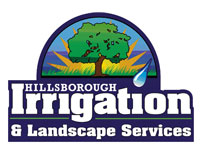How to Grow a Vegetable Garden in Your Landscape
For many homeowners, there’s nothing more satisfying than growing a vegetable garden. Not only can it add a unique, rustic look to your yard, it also provides you with fresh produce you can prepare. Vegetable gardens often require the same amount of care as flower gardens, but things are much less forgiving if you don’t give them the proper amount of attention.
Use this guide to learn the ins and outs of growing and caring for a vegetable garden in your landscape.
Setting Up Your Garden

The first step to growing a vegetable garden is deciding on a good place to plant it. Vegetables need at least 6 hours of sun each day, so pick a spot where the sun hits the ground without any shade blocking it. Make sure you plan things out carefully so nothing will get accidentally trampled once the garden is in place.
The quality of the soil you’re using will also dictate how well the plants will grow. Good soil for vegetable gardens typically has a lot of compost, as it will provide organic nutrients for the plants. You also need to be considerate of the time of year you’re planting in when you want to grow specific vegetables.
Before you plant anything, make sure you properly till the soil to make a good bed for the seeds to rest in. Try to set things up in a triangle shape so the plants have enough room to breathe and grow. Once you have your garden in place, here’s how you can maintain it and keep it healthy throughout the year.
Water Regularly, & Install an Irrigation System

An important part of growing any type of garden is making sure the plants get enough water. Typically, one inch of water a week is enough to keep your vegetables properly nourished, though more will be required if the sun is strong on a given day. Be mindful of rain, since it will provide an adequate amount of water on its own.
Watering the garden manually can be exhausting, so any homeowner looking to grow a garden will benefit from an irrigation system. Sprinklers can cover a wide area, and will ensure that the plants get enough water, even if you’re out of the house. Proper watering will help the roots stay strong and healthy, and a sprinkler system will save you a lot of time and frustration during this process.
Cut Out Weeds Regularly & Remove Excess Seeds

Next, you need to get into the habit of doing weed control and checking over your garden for weeds to remove. Not only are many weeds unsightly, they also compete for the nutrients and water that you’re giving to the vegetables.
If you don’t take care of weeds on a regular basis, your plants may not get enough nutrients to grow properly. Adding in a proper amount of mulch will help suppress weeds and provide new nutrients for the vegetable seeds.
In addition, you may also need to remove excess plantings if the space is getting too crowded. Snip off any plants you want to get rid of so the others can grow to maturity with no complications.
Apply Fresh Fertilizer for the Soil

Lawn fertilizations are also important when you’re raising vegetables at home. It’s important to note that different types of vegetables have different nutritional needs. Figuring out which fertilizer to get for each of your crops is necessary if you want everything to grow well.
Hillsborough Irrigation can help you determine which fertilizer is best for the crops you want to grow. From there, apply the fertilizer, while making sure each plant gets the proper amount.
Always be mindful of how much you’re applying. Some plants, like tomatoes, need fertilizer every 3 or so weeks, while other plants may need it on a more frequent basis.
Don’t Forget to Harvest When the Produce is Ripe

Last, but not least, you must remember to harvest your vegetables once they’re ripe. You want to do this to ensure the vegetables taste fresh, but it’s also important for another reason. Proper harvesting also ensures than new vegetables can grow in to replace the ones you plucked out.
Keeping the vegetables on their vines won’t make them taste any better, so harvest them right when they’re ready. If you wait too long, the plant won’t be able to make any more produce. Be careful when you’re harvesting, because any bruises or scratches will cause the vegetables to decay much quicker.
